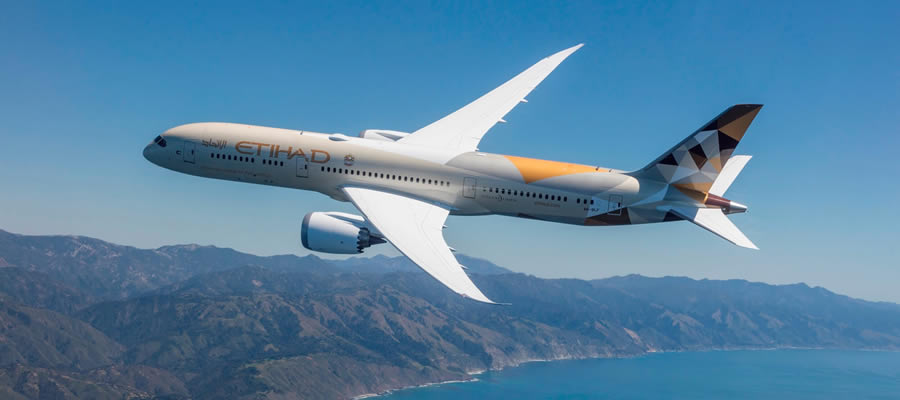Etihad Airways announced an improvement in core operating performance of 15% in 2018, 7% higher than forecast, on revenues of US$5.86 billion (2017: US$ 6.0 billion). The airline reported a loss of US$1.28 billion for the year (2017: US$ -1.52 billion).
Since commencing its five-year transformation programme in 2017, the airline states that it has improved its core operating performance by 34% despite challenging market conditions and effects of an increase in fuel prices.
Etihad carried 17.8 million passengers in 2018 (2017: 18.6m), with a 76.4% seat factor (2017: 78.5%) and a decrease in passenger capacity (Available Seat Kilometres (ASK)) of 4% (from 115.0 billion to 110.3 billion).
The airline increased yields by 4%, largely driven by capacity discipline, network and fleet optimisation and growing market share in premium and point-to-point markets. Passenger revenues remained steady at US$5.0 billion.
Etihad Cargo recorded a strong performance for the year largely due to a lower cost base, a programme of efficiency improvements including the consolidation of the freighter fleet around the Boeing 777F, and a refreshed network focusing on core trade lanes leveraging Abu Dhabi’s geographical position to maximise freighter to belly-hold flows.
Cargo revenue for the year was US$ 827 million (2017: US$ 877m) with 682,100 leg tonnes carried (2017: 853,300 tonnes). Cargo Freight Tonne Kilometres (FTK) decreased by 21% (from 4.3 billion to 3.4 billion), with a 15.5% increase in yields.
The airline significantly reduced total costs by US$ 416 million to US$ 6.9 billion (2017: US$ 7.3bn). Direct operating costs were reduced by US$ 226 million (3.6%) despite ongoing fuel price volatility. Administration and general expenses declined by US$ 190 million (19%), mainly driven by lower indirect manpower and other administration costs.
Tony Douglas, Group Chief Executive Officer of Etihad Aviation Group, said: “In 2018, we continued to forge ahead with our transformation journey by streamlining our cost base, improving our cash-flow and strengthening our balance sheet.
“Our transformation is instilling a renewed sense of confidence in our customers, our partners and our people. As a major enabler of commerce and tourism to and from Abu Dhabi, we are intrinsically linked to the continued success of the emirate.”
During 2018, Etihad Airways took delivery of eight new aircraft including three Boeing 787-9s, four Boeing 787-10s and one Boeing 777-200 freighter. The airline’s fleet count at year end was 106, with an average age of only 5.7 years.
Following negotiations with Airbus and Boeing, revisions to Etihad’s forward fleet commitments were announced on 14 February 2019. Under these agreements, the airline will take delivery of five Airbus A350-1000, 26 Airbus A321neo and six Boeing 777-9 aircraft in the coming years.
A number of unprofitable routes were discontinued in 2018 including Tehran, Jaipur, Entebbe, Dallas / Fort Worth, Ho Chi Minh City, Dhaka, Dar es Salaam, Edinburgh and Perth.
The airline continued to forge important partnerships with other airlines and transport companies last year, including Saudia, Azerbaijan Airlines, Swiss, and Accesrail, adding to a growing list of 55 codeshare partners. Etihad has expanded its reach to more than 400 destinations worldwide by placing its EY code on 18,513 weekly flights beyond its own network.
On-time performance was 82% for flight departures and 84% for arrivals in 2018, making Etihad among the most reliable and punctual airlines in the world. Across its network, the airline completed 99.7% of scheduled flights.

